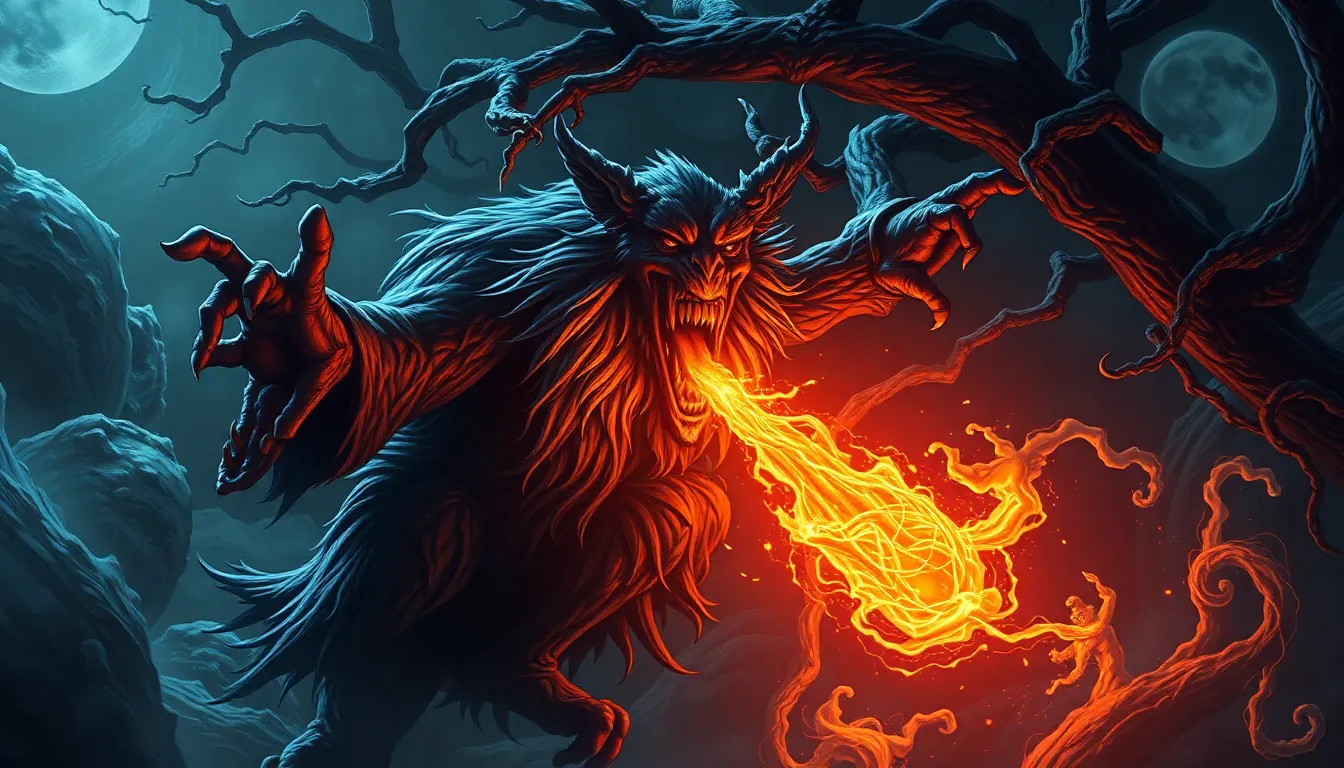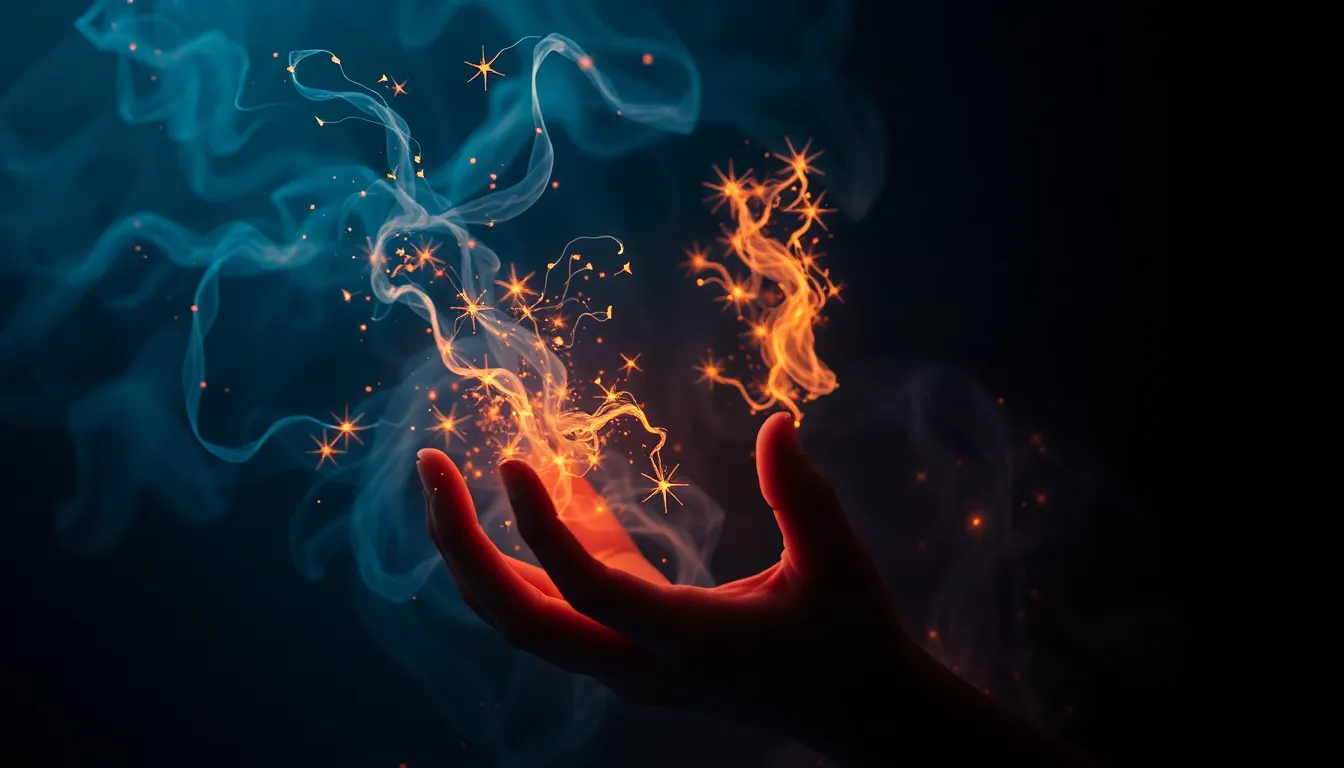The Tengu and the Sword: Exploring the Tengu’s Role in Japanese Martial Arts
I. Introduction
The Tengu is a prominent figure in Japanese folklore, often depicted as a supernatural creature with both human and avian features. Traditionally portrayed as protectors of the mountains and skilled warriors, Tengu have become deeply embedded in the cultural fabric of Japan.
In Japanese martial arts, swordsmanship holds a place of great significance, embodying not only skill but also a philosophical approach to life and combat. The precision and discipline required in sword techniques reflect the warrior spirit that is central to many martial arts disciplines.
This article aims to explore the connection between Tengu mythology and martial arts, examining how these legendary beings have influenced the development of martial practices, philosophies, and techniques over time.
II. Historical Background of the Tengu
The origins of the Tengu myth can be traced back to ancient Japan, where they were originally seen as deities or spirits of the mountains. Over centuries, their portrayal evolved from benevolent protectors to more mischievous and sometimes malevolent entities.
Tengu are often depicted as skilled fighters and guardians, which aligns with the warrior ethos in Japanese culture. They are believed to have the ability to master martial arts, making them symbols of strength and prowess.
The Tengu’s influence extends beyond folklore into literature, where they appear in various tales and narratives, often as mentors or formidable opponents to heroes and warriors.
III. Tengu in Martial Arts Tradition
The Tengu’s symbolic representation in martial arts is multifaceted. They often embody the ideal warrior, combining physical skill with spiritual depth. Tengu are revered as patrons of several martial arts schools, and their imagery can be found in the dojo and training halls.
Many martial arts philosophies draw inspiration from Tengu, emphasizing values such as:
- Discipline
- Respect for nature
- Continuous self-improvement
- Balance between power and humility
IV. The Role of the Sword in Japanese Martial Arts
The sword holds a sacred place in Japanese culture and martial arts. Historically, the katana has been regarded not just as a weapon but as a symbol of the samurai’s honor and spirit. The craftsmanship of sword-making is an art in itself, reflecting the dedication and skill of the artisan.
Different sword styles have emerged in Japan, each with its own techniques and philosophies, including:
- Kenjutsu: The traditional art of Japanese swordsmanship, focusing on combat techniques.
- Iaijutsu: The art of drawing and cutting with the sword in one motion, emphasizing speed and precision.
The connection between swordsmanship and spiritual practice is profound, as many martial artists view their training as a path to self-discovery and enlightenment. The meditative aspects of sword training reflect the harmony between mind and body.
V. The Tengu’s Techniques and Teachings
Legends attribute various techniques to the Tengu, depicting them as masters of martial arts. These techniques often encompass unique movements and strategies that emphasize agility, speed, and cunning, traits commonly associated with Tengu.
As teachers and mentors, Tengu are often portrayed in folklore as guiding warriors in their training. They provide wisdom and insight, blending myth with practical training methods. Many martial artists seek to embody the qualities of the Tengu in their practice, aspiring to achieve a balance of physical prowess and spiritual awareness.
VI. The Tengu in Modern Martial Arts
In contemporary martial arts, Tengu continue to be represented, both in the practice and in popular culture. Their enduring legacy is evident in various martial arts forms that incorporate Tengu-inspired techniques and philosophies.
Modern martial artists often draw upon Tengu lore to inspire their training, emphasizing the importance of adaptability, resilience, and a connection to nature. Many martial arts practitioners see Tengu as a symbol of the ideal warrior, constantly striving for improvement.
VII. Cultural Impact of Tengu in Martial Arts
The cultural impact of Tengu extends beyond martial arts into popular culture, where they appear in anime, video games, and literature. Their portrayal often emphasizes their martial prowess and mystical abilities, captivating audiences and inspiring new generations of martial artists.
Moreover, Tengu play a role in martial arts festivals and events, where their significance is celebrated through demonstrations, storytelling, and rituals. These events serve to honor the traditions of martial arts while keeping the spirit of the Tengu alive.
As a source of inspiration, Tengu encourage martial artists to explore the deeper meanings of their practice, reminding them of the balance between strength and humility.
VIII. Conclusion
The Tengu’s influence on Japanese martial arts is profound and multifaceted. As symbols of strength, wisdom, and agility, they embody the spirit of the warrior and the values upheld in martial training. The integration of Tengu lore into contemporary practice highlights the importance of mythology in shaping martial arts traditions.
In reflecting on the connection between Tengu and martial arts, we recognize the enduring power of myth to inspire, guide, and enrich the journey of martial artists. The legacy of the Tengu continues to motivate practitioners to seek harmony between their physical skills and spiritual growth, ensuring that the spirit of the Tengu remains a vital part of martial arts culture.



